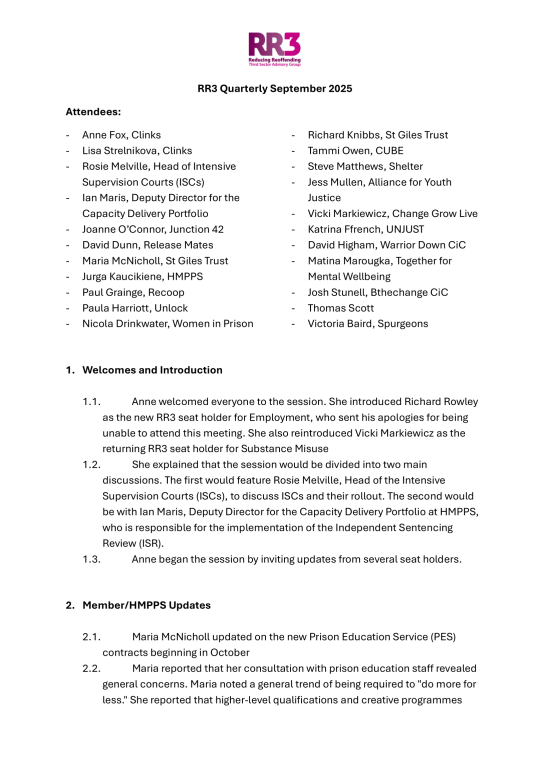On Wednesday 10th December I went to hear Labour’s shadow civil society minister, Lisa Nandy, outline her party’s plans for the voluntary sector. This followed their consultation in September, called “Renewing our Bond with the Third Sector”, which Clinks responded to here.
Although the Guardian covered her main points here, no specific written pledges have been made yet, and there is no guarantee that any of it will end up in the party’s manifesto. However, both the consultation and the speech covered a lot of ground, and should be seen as the best indication we’ve had of how Labour would work with the sector.
The speech started with a focus on the collapse of Northern Rock, and the potential consequences for the local area. Here, she said, was a trusted civil society institution whose collapse had ramifications across the North East. Clinks members based in the region, many of whom receive vital funding from the Northern Rock Foundation, will be familiar with the truth of that, as captured by my colleague Natalie Maidment in our survey of the voluntary sector in the North East.
However, for Lisa Nandy, there was a bigger story to tell. In her view, it was the state who had initially abandoned the people of the North East, leading to a level of dependence on the voluntary sector that should never have existed in the first place. As she put it, “Government can’t fix everything- but it also can’t walk away and assume communities can fend for themselves.” Clinks members will of course have their own thoughts on whether any previous government, of any political colour, has fully embraced its responsibility to meet the particular needs of offenders up to now. But the promise of meaningful partnership to address vulnerability is positive in principle.
The speech also commented on the Lobbying Act, and the limitations it could impose on campaigning. Labour had already said that they would repeal the Act in government; Nandy’s words were that this would be “the first thing we’d do”. Other commitments related to the sector’s treatment of staff and volunteers. Charities, she said, should not preserve inequality in their own structures by offering poor pay and conditions, and Labour would crack down on exploitative practices such as zero-hours contracts in whichever sector they emerged, raise the minimum wage, and commission a study of pension provision. At the same time they would take steps to encourage volunteering and cross-sector cooperation, by introducing a kitemark for employers who give workers time off to volunteer, and encouraging secondments between the voluntary sector and the civil service.
For many the important question was how Labour views the role of the sector in the delivery of public services. Nandy was clear that the sector should be involved, and pointed out that her colleague, Chi Onwurah, had already committed to reserving some central and local government contracts exclusively for social enterprises. She also alerted the audience to a forthcoming publication on how local authorities can improve the way they work with the voluntary sector, which Clinks will keep an eye out for.
Further details are still scarce at this stage, especially how they will apply to the Criminal Justice System. Analysing the parties’ policies as they relate specifically to Clinks members feels like piecing together a jigsaw puzzle, though some of the above does begin to hint at the finished picture. As the countdown to the election begins, Clinks will continue to monitor the key announcements from all the political parties to keep you up to date.
What's new
Blogs
Violence Against Women and Girls (VAWG) Strategy Blog
Publications
Latest on X
The role is for a leader from an organisation focused on racially minoritised people, with expertise in service delivery, policy, advocacy, or related areas in criminal justice. Racial disparities are present at every CJS stage. This role ensures these voices are central in shaping policy to help address and eradicate them. Apply by Mon 18 Nov, 10am. More info: https://www.clinks.org/voluntary-community-sector/vacancies/15566 #CriminalJustice #RR3 #RacialEquity

